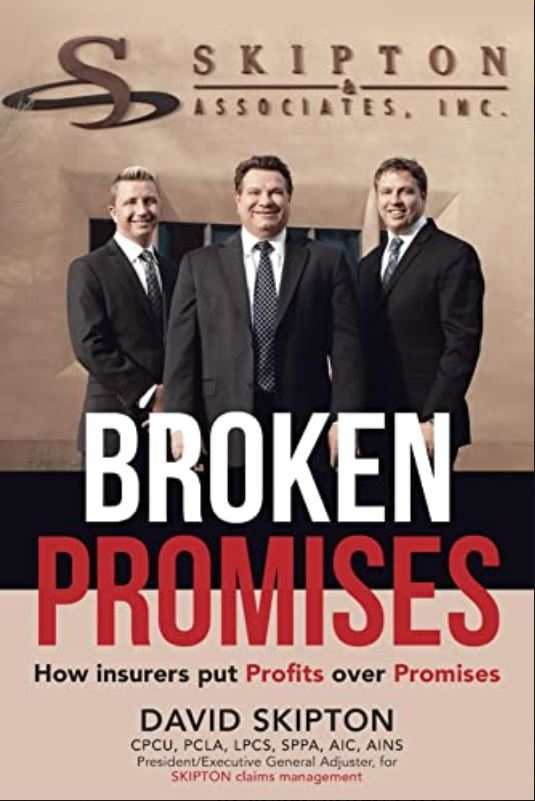
Broken Promises
How Insurers Put Profits Over Promises
Treating insurance claims as a legal negotiation and naming strategies to win, Broken Promise is an insider’s guide to navigating insurance industry behaviors.
Concerned with the contemporary responses of the insurance industry to major losses, David Skipton’s book Broken Promises is eye-opening.
Skipton, who represented clients through insurance claims for years, shares his best tips for dealing with insurance companies in an increasingly profit-driven industry given to lowball offers and litigious strategies. Written for those who have lost a business or a home due to fire or other calamities, it introduces the challenges that insured people face, following these with explanations of the traps set along the way of settling a claim, including the misapplication of depreciation and the improper application of deductibles. It also encourages insured people to read their policies well and to keep strong records, and it closes with concise guides for implementing the strategies it suggests.
However, the notion that insurance companies can’t be trusted pervades the book to the degree that it becomes wearying. There are shocking revelations throughout, including evidence that company agents treat claims as a “zero-economic gain” and that they’re trained to wait clients out and to put on their “boxing gloves” when customers reject paltry offers. There are critiques of specific companies, too: Consumer Reports‘s low ratings of Allstate and Liberty Mutual are included. But beyond the immediate shock value of such notes, the central assertion (that most insurance companies don’t live up to their marketing hype) is unsurprising.
To support its jaded tone, the book includes anecdotes from clients who bought into marketing messages only to find the process of actually dealing with their insurers to be a challenging one. It also cites legal cases to highlight the challenge of getting a fair deal from an insurance company. But these struggles are often detailed in such grandiose terms that their persuasiveness is muted: such struggles are reaching “epidemic” proportions, the book says, with insurance companies becoming even more blatant about eschewing their contractual obligations. Its dense paragraphs bristle with rancor over past struggles; despite the book’s strong advice, despair sets in about the likelihood of ever getting a fair deal from an insurance company. Its sales-pitch conclusion—that the solution is often to pay for representation from an attorney or an independent adjuster—further solidifies such cynicism.
Naming commonsense techniques for approaching insurance companies, Broken Promises arms customers with the knowledge to settle their insurance claims well.
Reviewed by
Jeremiah Rood
Disclosure: This article is not an endorsement, but a review. The publisher of this book provided free copies of the book and paid a small fee to have their book reviewed by a professional reviewer. Foreword Reviews and Clarion Reviews make no guarantee that the publisher will receive a positive review. Foreword Magazine, Inc. is disclosing this in accordance with the Federal Trade Commission’s 16 CFR, Part 255.
